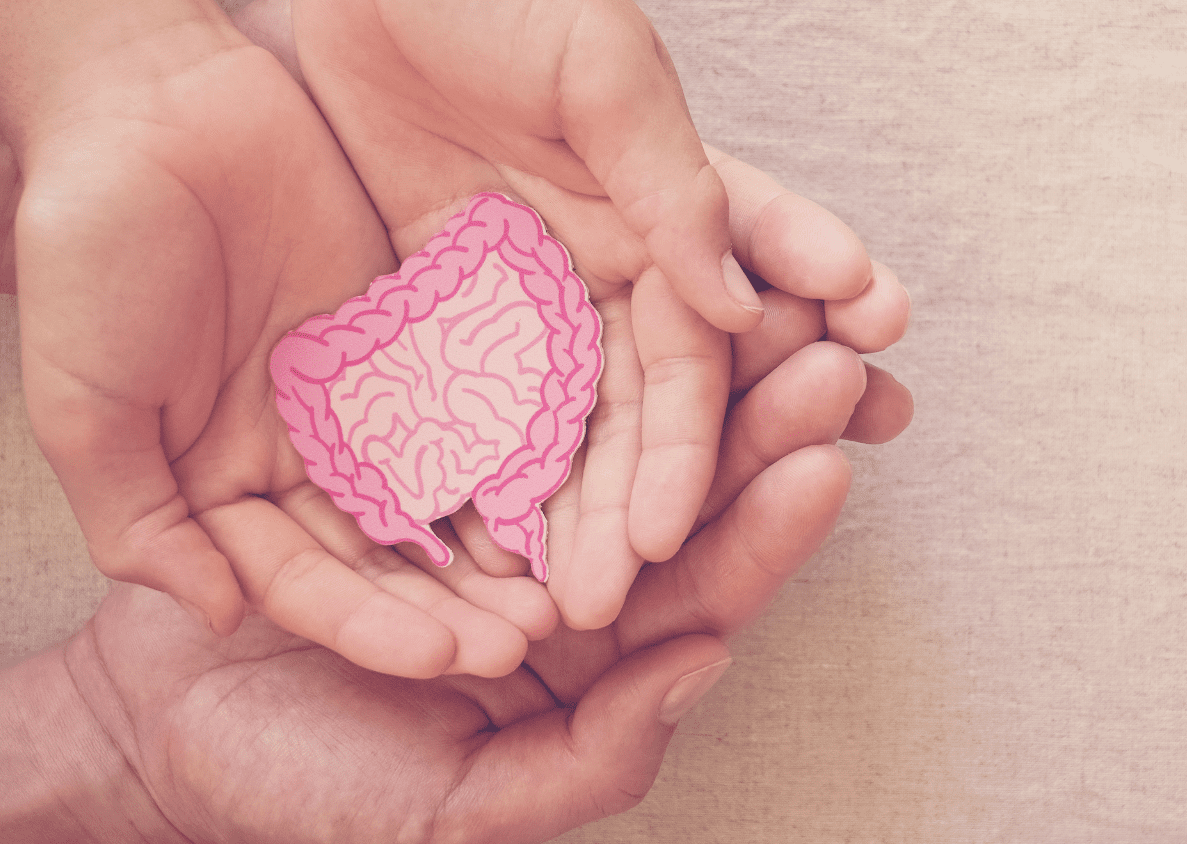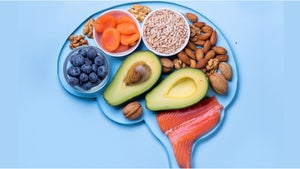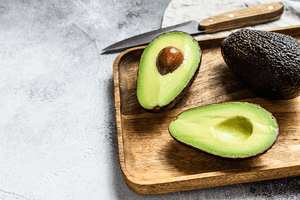Giving Yourself and Others the Gift of Good Gut Health
You probably already know how important gut health is. Your gut is home to millions of bacteria, both good and bad, the balance of which can influence different aspects of your health, including your immunity, metabolism and even your mental health[i]. So there’s no better gift to give to both yourself and your family than a healthy microbiome.
Supplements, like our Gut Health and Wellness Duo pack, can support your overall wellbeing with a combination of supportive vitamins and live bacteria. And according to experts, what you eat can directly impact the balance of your gut microbiota too[ii], which means a carefully planned diet might just be the best gift you give to yourself, and your family, this festive season. But where to start? Read on for our ultimate guide to giving the gift of good gut health.
Why is it Important to Eat Well to support your Gut?
We’re all well aware of the importance of eating healthily. However, what fewer of us realise is that in addition to eating plenty of wholemeal foods, fruit, vegetables and a careful balance of proteins, carbs and good fats, it’s smart to get plenty of foods that support your microbiome in there too.
What is your microbiome and why is it important?
With around 200 different species of bacteria, viruses and fungi hanging out in your gut[iii] - some good and others not so great - it’s vital to keep the balance just right. In fact, the balance of bacteria in your gut is proven to be incredibly important to your wellbeing, with experts suggesting that the perfect balance of gut microbes could go some way to protecting you from a number of conditions, including inflammatory bowel disease and diabetes[iv].
Signs of an unhealthy gut
How do you know if your gut microbiome is out of whack? An unhealthy gut can contribute to all sorts of issues, affecting your immune system[v], your weight[vi] and even your mental health[vii]. Early signs that all is not well in your or your loved one’s belly might include an upset stomach, gas and bloating, unintentional weight gain or, on the other hand, unexpected weight loss. In addition, you might notice changes to your skin and find that your sleep is disturbed too.
How to support gut health
Supporting your gut health is all about eating well. And as well as a rounded diet full of good, nutrient packed foods, you should consider:
Reducing stress: living a stressful life can play havoc with your gut. Consider yoga, meditation or making time to walk in nature if stress is causing tummy troubles.
Drinking plenty of water: staying hydrated is important for all aspects of your health and can help to reduce instances of constipation.
Slowing down your eating: your mum was right, chewing thoroughly and eating mindfully could help reduce the risk of obesity[viii].
Getting enough sleep: research suggests that poor sleep can negatively impact gut health[ix] so aiming for that dream eight hours is sensible.
Recognising intolerances: experiencing bloating, nausea, reflux or diarrhoea? You could have a food intolerance which may, in turn, upset your microbiota balance.
Support your gut health with our Gut Health and Wellness Duo pack makes for the ideal healthy stocking filler.
What Foods Are Good for Gut Health?
Lifestyle changes aside, it’s possible to add foods into a diet specifically to promote improved gut health. Foods containing polyphenols, like berries, apples and even dark chocolate are a must, as are pre and probiotic rich foods.
Best probiotic foods for a healthy gut
The bacteria that live inside your gut, probiotics like Lactobacillus and Bifidobacterium, are also found in a wide range of fermented foods. Chowing down on the likes of kimchi or sauerkraut is thought, therefore, to help balance your microbiome. If fermented vegetables aren’t your thing there are plenty of other delicious foods, like tempeh, while drinks such as kombucha are also thought to support gut health (just be sure, if making your own, to keep alcohol levels down). Both kefir and certain yoghurts – whether eaten or consumed as a drink – contain beneficial bacteria too, making it easy to get probiotics into your daily routine. Miso is also a good source of probiotics and makes for a warming, easy lunch.
Best prebiotic foods for digestive health
Probiotics need prebiotics in order to live their best lives. Essentially providing food for your gut’s microbiome, prebiotics are fibres found in a great variety of foods. Ingredients that make for good prebiotics include galactooligosaccharides, fructooligosaccharides and oligofructose but don’t worry about committing those awkward words to memory, simply feast on plenty of fruit and vegetables to get your fill of prebiotics. Particularly high in prebiotic power are Jerusalem artichokes, beans, leeks, garlic and onions. Pears and watermelon are also excellent choices while bananas are especially recommended if eaten while firm and green.
Why Are Fermented Foods So Good For Gut Health?
It may not sound particularly delicious but fermentation can create some seriously yummy foods and, as a bonus, fermented foods are brilliant for your health too. These foods are created using live cultures, and the same bacteria that cause fermentation can also be found inside your gut, hence their potential probiotic effect. Not only that, but fermented foods like kimchi and yoghurt tend to be easy to digest. They also make vitamins and minerals easier for us to absorb by removing anti-nutrients such as phytic acid[x], which can inhibit the absorption of zinc and iron.
How Can I Introduce More Gut Supporting Foods Into My Family’s Diet?
Luckily gut supporting foods are now more available than ever before, meaning that if you don’t have the time or inclination to whip up your own kimchi or home brew kombucha you can simply pick up something gut friendly in your local supermarket instead.
Top tips for a family friendly good gut health diet
Create gut friendly food that your family will love by:
Working fermented foods into favourite recipes: stirring kimchi into fried rice or running sauerkraut through mashed potatoes are both easy ways to incorporate gut healthy fermented foods into everyday recipes.
Reduce processed foods: high sugar processed foods aren’t great for your gut. Reduce the use of pre-prepared ready meals and highly processed snacks wherever possible.
Seek out fibre: dietary fibre has been seen to support gut health[xi] so opt for oats for breakfast, choose wholemeal pasta and try substituting legumes like chickpeas for your usual meat.
Cut down on red meats: trimethylamine-N-oxide, created when the L-carnitine in red meat interacts with gut bacteria, has been linked to heart disease[xii], showing that gut health is about more than just your intestines.
Go heavy on the garlic: if your family enjoy garlic-rich recipes you’re in luck, the stinky stuff is a great prebiotic, containing both inulin and fructooligosaccharide fibres.
Get fruity: with polyphenols and prebiotics found in many fruits it’s sensible to keep a wide variety in stock. Smoothies are an easy way to enjoy a good injection of gut bacteria feeding fruit and why not chuck in a hefty spoonful of yoghurt or kefir for all the benefits of fermented foods too?
Cut down on alcohol: headline news is that excessive alcohol consumption has a negative effect on gut health[xiii]. With this in mind consider reducing your intake to the NHS’s recommended 14 units or less per week.
Check food labelling: many fermented foods, like miso or sauerkraut, can be high in salt. Likewise, yoghurt and kefir is often sweetened and can contain artificial flavourings and colourings. Read labels carefully and eat processed fermented foods in moderation.
* Calcium contributes to the normal function of digestive enzymes Pantothenic acid contributes to normal mental performance.Biotin, Folate, Niacin, Thiamine, Vitamin B12, Vitamin B6: contributes to normal psychological function.Folate, Niacin, Pantothenic acid, riboflavin, Vitamin B12, Vitamin B6: contributes to the reduction of tiredness and fatigue.Biotin, Niacin, Pantothenic acid, riboflavin, thiamine, Vitamin B12, Vitamin B6: contribute to normal energy yielding metabolism.
Sources
https://www.bbcgoodfood.com/howto/guide/health-benefits-offermentinghttps://www.eatingwell.com/article/2059033/best-and-worst-foods-to-eat-for-gut-health/https://www.bhf.org.uk/informationsupport/heart-matters-magazine/nutrition/ask-the-expert/what-foods-help-gut-bacteriahttps://www.health.com/sleep-schedule-gut-health-7570015https://www.healthline.com/health/gut-healthhttps://www.nhs.uk/live-well/eat-well/digestive-health/good-foods-to-help-your-digestion/







